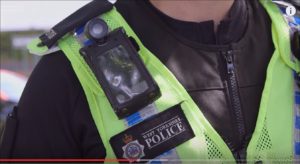This is the fifth in a series of posts on the seminal Policing for a Better Britain report.
Raising standards and remedying misconduct
One of the main attractions to me of the Stevens Report, as Policing for a Better Britain is more commonly known, is its willingness to tackle the main problems facing modern policing, even those that are sensitive and difficult.
This is a very helpful approach when applied to the key issue of police standards. The report acknowledges that there have been a spate of organisational failures and scandals over recent years which have damaged public confidence in the integrity of the police.
The Stevens report diagnoses the problem as having two separate bodies to monitor organisational performance (Her Majesty’s Inspectorate of Constabulary) and investigate complaints (the Independent Police Complains Commission). Its solution is to reccommend the abolition of both bodies and create a single new body to handle both remits:
]The Independent Police Standards Commission (IPSC)
What would the new IPSC do?
The Stevens Report identifies five core functions for this proposed new body which it envisages will fill both the inspection and investigation of complaints functions:
- To ensure that the standards set by the College of Policing are being properly applied by individual forces.
- To ensure that those standards are fit for purpose and recommend any changes to the College of Policing
- To inspect local forces in terms of their efficiency, effectiveness and value for money.
- To oversee the professional standards frameworks. The College of Policing would be responsible for managing new “professional competence and conduct panels”, but the IPSC would have the duty to ensure that they met the public interest.
- To investigate the most serious misconduct breaches – the IPSC would be the “prosecution authority” for serious complaints and the appeal body for complainants who weren’t satisfied with the outcome of lower-level complaints.
Is this the right way forward?
This seems to be a particularly bold and radical approach to addressing two separate problems. The Stevens Report makes a very strong recommendation that this new ISPC should be entirely independent of the police service. This seems to me to be absolutely right in terms of the investigation of serious complaints.
However, although the inspection function would benefit from a broader perspective, surely the intimate knowledge of police officers is absolutely key to make inspections a helpful and constructive exercise, rather than just a bureaucratic requirement?
Although the IPCC has clearly attracted some negative publicity recently, in particular over their investigation into the Duggan shooting, its overall track record since it was founded in 2004 makes it unclear why it should be abolished.
Many of us feel that overall police standards are high. However, it is clear that a series of recent scandals have damaged public perceptions. What do you think is the right way to grasp this nettle and restore public confidence in the integrity of the police?
Please share your ideas by the comment section below.








2 Responses
I think having a separate independent body such as the IPSC would be sufficient.
• More cost effective
• More transparent and accountable
• Easier to monitor, review and performance manage.
The five functions identified for the IPSC sounds feasible as long as departments are set up and procedural structures and organisational structures are in place, I think this can work. Also I think multidisciplinary teams could bring a lot to the table and a different perspective to the IPSC. I think it should be completely independent from the Police Service. This will ensure a non-biased approach when conducting an investigation and when dealing with serious complaints, Intimate knowledge of Police Officers is absolutely key and this can be obtained from their senior supervising officers as long as regular appraisals and staff supervision is undertaken within each force.
“Everyone needs to be accountable”.
Hi Roseline
Thanks very much for your thoughtful comment